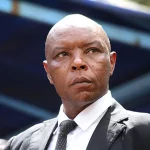Rapper KRG The Don and Omosh, a staunch supporter of the Azimio la Umoja political coalition, found themselves locked in a heated debate concerning the ever-rising cost of living in Kenya.
The passionate exchange, which took place in a video shared by vlogger Vincent Mboya, revolved around their respective political allegiances.
During the discussion, one of Raila Odinga’s devoted supporters, Omosh accused President William Ruto of imposing a heavy economic burden on Kenyans, resulting in a high cost of living.
In response, KRG The Don urged Omosh to explore alternative avenues for generating income, emphasizing that the cost of living was unlikely to decrease in the near future.
“There is no day when life is going to become more affordable. You either adapt to the current circumstances or seek new income opportunities.
Life will either remain the same or you must strive harder. You can’t stick with the same job for five years. Someone once gave me Ksh1,000, and it changed my life.”
Omosh countered by asserting that Kenyans would not find compelling reasons to vote for President Ruto for a second term.
He confidently declared, “Ruto will be the first president in Kenya to serve only one term.”
The fiery exchange between KRG The Don and Omosh highlights the deep-rooted political divisions and concerns over the cost of living that continue to dominate discussions among Kenyan citizens.
The energy regulator on Thursday, 14 September, announced record-high fuel prices in its latest monthly review.
Anticipated fuel price hikes are poised to result in escalations in the prices of essential commodities and services, encompassing items such as food and public transportation.
This development is expected to further exacerbate public dissatisfaction, occurring shortly after the Treasury released its most recent medium-term revenue strategy, revealing forthcoming tax increases scheduled to commence next year.
The exorbitant cost of living and the imposition of burdensome taxes were key factors that ignited disruptive opposition-led protests against the government.
These protests intermittently paralyzed economic activities in Nairobi and several major towns across the country during the period spanning from March to July.



